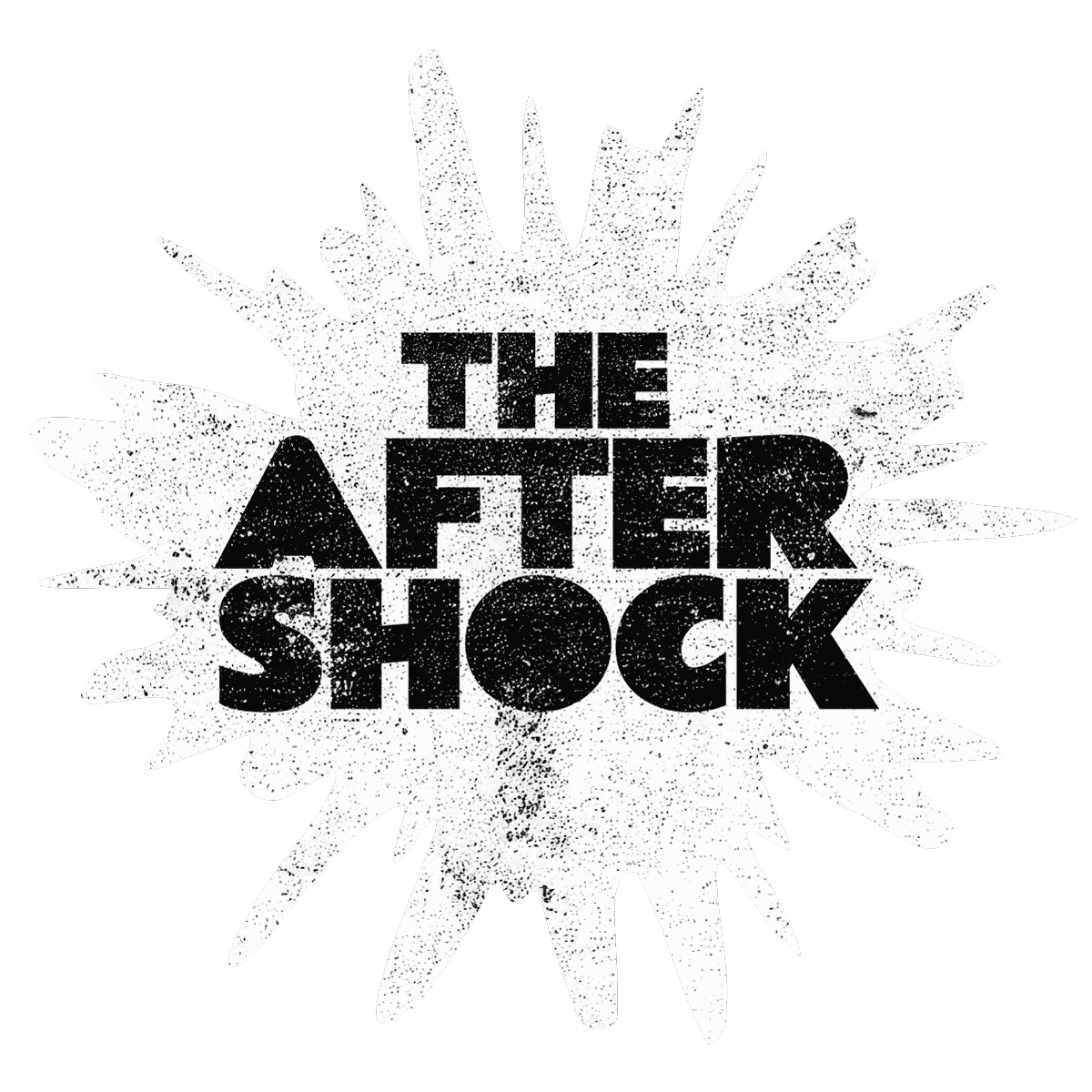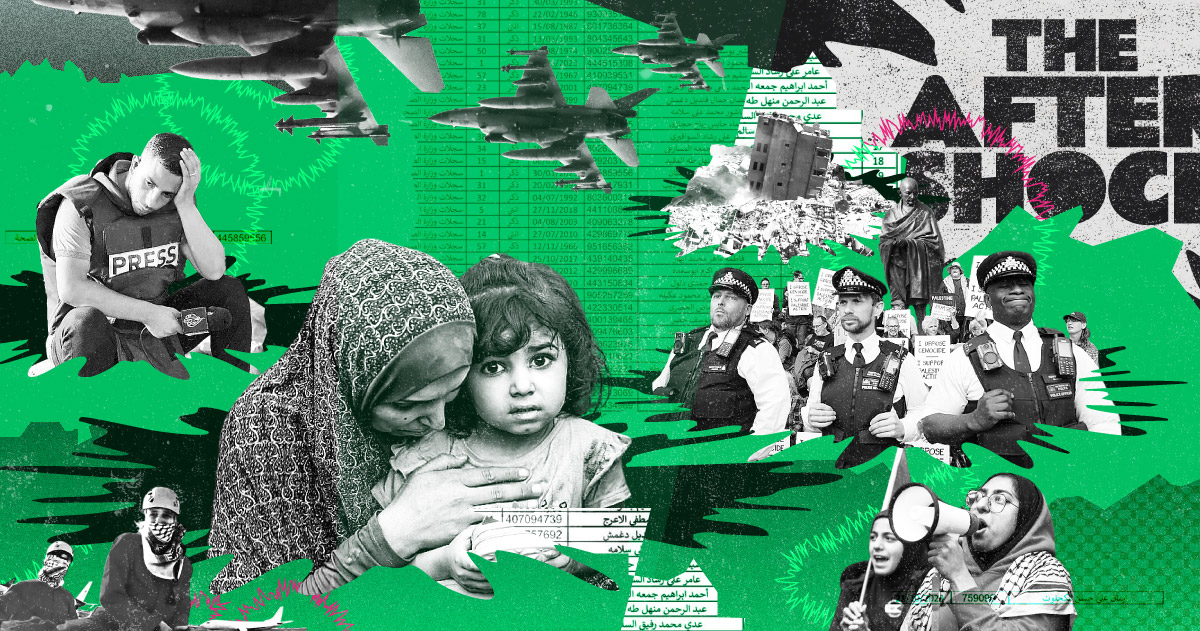Why the name ‘The Aftershock?’
At fault lines in the tectonic plates, when the earth’s crust can no longer contain the energy and tension within it, the earth shifts, creating seismic waves and causing earthquakes. Usually these happen as part of a sequence of seismic events. The largest of these quakes is known as the main shock. What usually follows is a series of quakes in varying magnitude and frequency, which might compound the damage enacted by the initial event. These are known as aftershocks.
Consider, for a moment, what it must be like to live through an earthquake. To have your life completely thrown up and destroyed. The great rumbling of an seemingly unstoppable force taking away the very foundations of everyday life as you and others know it. And then consider what it must be like to go through aftershocks. To feel constantly unsafe, to be at risk of more injury and death, and never knowing exactly when it will end, or even if it will end at all. And all because of what seems like the sheer bad luck of geography.
Events such as earthquakes are taken for granted as purely natural phenomena. But who gets to live and who gets to die in our society has been structured and influenced by human decision making, and by the way a society has been organised. In the 1556 Shaanxi earthquake in China, the majority of the dead will likely have been peasants living in Yaodong, earth dwellings excavated out of hillsides. In today’s society, the factors by which death is arranged comes from an entwined history of class rule, imperialism and colonization, which has led to what Ruth Wilson Gilmore has called ‘group-differentiated vulnerability to premature death — which is what in my view racism is.’
Western Imperialism might be said to hold the power of an earthquake – both in the sense that its policies and profit-motives exacerbate ‘natural disasters’ such as actual earthquakes, and in the more literal sense of its overwhelming military power. Nowhere is the latter more clear than in places like Palestine, where Israel’s genocide would not possible without the support and aid of countries such as Britain. Such arrangements were not entirely taken for granted – in 2020 the direct action network Palestine Action rose up and enacted a campaign of occupations, blockades and sabotage which threw the Zionist war machine into disarray, causing them to have to close factories, lose out on MoD contracts and getting companies to divest from the death dealer. Elbit changed its tune pretty fast – where it once boasted of having a monopoly on Israeli defence needs as a ‘one stop shop’ and how its weapons were ‘combat-proven’ on Palestinians, it now proclaimed the innocence of it and its subsidiaries.
For the first in a very long time, those who had profited and benefited from apartheid and ethnic cleansing had started to feel fear. The earthquake had come home, and shattered the windows, torn up the roofs and bashed the gates of their arms factories. Compared to its natural counterparts, and the counterparts erupting in Palestine, these shocks claimed no lives. All they were was effective in disrupting the military industrial complex in Britain and abroad.
It was this effectiveness that the British state – which has maintained a century long complicity with Zionism since the Balfour declaration – sought to stop. And they did so by proscribing Palestine Action, which seemed to be solely in relation to its action at RAF Brize Norton, but which soon became clear had been in the works for a long time, off the back of advice and pressure from alleged sexual harasser Lord Walney and Israeli lobbying. As Declassified UK said:
The incident at RAF Brize Norton, when Palestine Action activists sprayed paint into Voyager aircraft, was therefore the trigger but not the cause of the proscription order, which had been approved months prior.
The proscription was met by immediate resistance from Defend Our Juries, which started a campaign of civil disobedience, using mass arrests to bog the system down and highlight the government’s authoritarianism and support for genocide. But for the most part, it would not be unreasonable for someone to suggest that the movement is on the back foot, that it is in a moment of defeat.
But like any earthquake, there remains a vast store of tension within the site of the shock, and there remains a great deal of righteous anger at the genocide in Palestine and Britain’s complicity at it. Undoubtedly, people will take action to shut the war machine down, even with the increased risks; the use of counter terror laws has not broken the Filton 24, and it will be unlikely to deter future direct action. But without the visibility of groups such Palestine Action, the media will likely abet the current state of affairs by pretending such action is not happening, that it has stopped completely. In fact, it was only a few years ago that an observer might see actions posted onto Palestine Action’s social media feed that were outright ignored by the mainstream media. If it does appear, it is likely to be misrepresented by the press, which in Britain has long been overwhelmingly right wing and reactionary. The Beaverbrook and Murdoch mobs have always relished the opportunity to incite hatred and anger against those fighting for a better world.
That is where we come in. Our purpose is to record the aftershocks of political struggle, to give those who are committed to direct action against injustice and oppression a platform and a voice. Our team will aim to put out weekly reports of any actions taken around the globe, to write press releases for autonomous and independent activists who do have the capacity to do so themselves, to produce ongoing commentary and articles on politics, liberation and the need for action. With this work, we aim to, as the Zimbabwean writer Dambudzo Marechera put it, ‘destroy that which people take for granted’ and to shock them out of complacency and apathy. If the revolution will not come by leaps and bounds, then it will come by shock after shock. We’ll be there at the epicenter, reporting on the work done by the free people of the world to free not only Palestine, but themselves. That such declarations are made as the movement appears to be on the backfoot is no matter. As the Palestinian revolutionary Ghassan Kanfani said: ‘What is happening now is only the labour pains of something great that will be born from the rubble of defeat like a volcano born from under the cold ashes of a forsaken mountain.’

